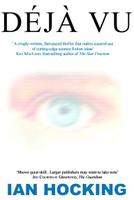Friday Morning Eggs Benedict (heavy on the hollandaise)
Though most on-topic is her entry "Previously Published" (near the bottom.) You already know where she is going, don't you?
______________________
I have yet to recommend a non-POD book on this blog, but please allow me one exception. There is a book every writer (especially those not published) should read and it is this: 78 REASONS WHY YOUR BOOK MAY NEVER BE PUBLISHED AND 14 REASONS WHY IT JUST MIGHT by Pat Walsh.
Pat Walsh was one of the founding editors at MacAdam/Cage, a small press with some of the most thought-provoking releases in the last few years (remember THE TIME TRAVELER'S WIFE?) This book brings to light everything you need to know about the industry (as a writer, that is) and delivers it with grace and humor. The sections on "understanding the publishing industry" and "understanding agents" are dead-on accurate (and, of course, so were the chapters on self-publishing.) Not only were these vignettes fun to read but they reminded me how lucky/blessed I am to be in print today.
About every five pages or so I would think to myself I wish this book had been in print before I ever tried to get published. Where did I find time to read yet another book amidst this sea of POD? Well, once I'd started, I couldn't stop. This book is compelling.
Also note: it's $14 and only 200 pages. If I didn't know better I'd think it was POD.
______________________
Am I the only person obsessed with stock photos causing some embarrassment in the publishing industry? Apparently not. The New York Times (always a day late and a dollar short when breaking a news story *wink*) has a juicy article on even more covers with images that are (nearly) identical to others. And some are big writers (i.e. Jeffrey Eugenides.)
The NYT gives you a good look at what it costs these publishers to "borrow" the images (buying them outright is too costly, they claim. Then I guess they shouldn't complain, eh?)
Moral: Shoot your own cover or get an image that can be retired.
______________________
And here is a mind-boggling entry from Authorhouse. From this press release:
"We started hosting our conferences in Indianapolis four years ago with the goal of supporting local aspiring authors," said J. Andy Murphy, WriteStuff Writers' Conference founder and author/literary agent. "We never dreamed that our efforts would be so successful that we would grab the attention and support of the world's largest book publisher (AuthorHouse) and the nation's most prestigious literary magazine (Writer's Digest)."
Funny. I would have bet my life that the "world's largest book publisher" was Random House and the "nation's most prestigious literary magazine" was The New Yorker. Golly, where have I been?
I'm sure the conference would have been just has worthwhile without the grandstanding.
______________________
And have you checked out the pictures from Will Clarke's most recent book signing? (July 7th) Holy Vishnu! What a turnout! That's the dream of every POD-author-who-wants-to-be-commercially-published.
Oh, who am I kidding? It's my dream, too.
______________________
And one more fun nugget: the Book Babes discuss (slam, mostly) the idea of self-publishing, specifically POD. It is difficult for people to find a new reason to hate POD (because the main ones are so convincing) but the exceptions to the rule are becoming more numerous as time moves on. I can only hope that some of the folks on the list to the right will be exceptions.
Happy eating, everyone!

